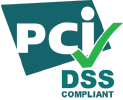In today’s fast-paced digital world, efficiency is king, and convenience often leads to cutting corners. However, when it comes to online testing, shortcuts can lead to devastating consequences. One such shortcut is proxy testing—an approach where test-takers hire others or other deceptive methods to achieve certification.
But here’s the burning question: Would you give a thief a key to your house? Proxy testing is essentially doing just that—unknowingly granting access to sensitive systems and data to bad actors.
Let’s dive into the risks of proxy testing and why it poses a threat to not only your certification program but also the integrity of your business.
What is Proxy Testing?
Proxy testing refers to the unethical practice of hiring or engaging another individual—often a skilled test-taker—to complete an exam on behalf of the registered candidate. In more sophistocated cases, proxy testing involves technological manipulation, such as hacking or tampering with proctoring software, to bypass security measures. While it may seem like an isolated problem, the proliferation of such practices has made it a widespread concern in the credentialing industry, jeopardizing the integrity of certification programs worldwide.
The Risks of Proxy Testing
1. Erosion of Exam Integrity
When a proxy test-taker completes an exam, the result is a fraudulent certification. This undermines the value of your program, as credentials are no longer a reliable indicator of a candidate’s knowledge or skills. Over time, this erosion of trust can damage your brand reputation and the credibility of your certification.
2. Cybersecurity Threats
Proxy testing often involves downloading unverified software or granting access to proctoring platforms to third-party actors. These practices create an open door for malware, ransomware, or spyware attacks. Once a malicious actor gains access, they can exploit sensitive data, including personal information, intellectual property, or system credentials.
3. Financial Losses
When proxy testing schemes are uncovered, the fallout can include costly investigations, legal battles, and damage control. Organizations may also face the cost of implementing additional security measures to prevent future incidents. These financial losses can be staggering, especially for certification programs that rely on trust and reputation.
4. Regulatory Compliance Violations
Many industries have strict compliance standards for testing and credentialing. Proxy testing can result in violations of regulatory standards, leading to fines, penalties, or loss of accreditation. Non-compliance jeopardizes your standing and credibility in the industry.
How Proxy Testing Happens
Proxy testing schemes vary widely in sophistication. Some involve simple impersonation, while others rely on advanced methods like:
- Impersonation: Simple identity swaps during exams.
- Cheating Rings: Organized groups offering proxy test-taking services.
- Technology Exploits: Use of screen-sharing software or tampered proctoring devices.
- Dark Web Services: Anonymous networks providing illicit proxy testing for a fee.
In most cases, these schemes are hidden behind seemingly legitimate operations, making them difficult to detect without robust security measures.
The Stakes Are High
Proxy testing doesn’t just compromise exam integrity; it endangers your entire certification program by opening the door to cybersecurity threats, financial losses, and compliance violations. By prioritizing security and cutting-edge solutions, you can ensure that your program remains a beacon of trust and reliability.
So, ask yourself again: Would you give a thief a key to your house?
Safeguard Your Program Today
Protect your certification program with advanced security measures that address proxy testing threats. At Kryterion we provide state-of-the-art solutions designed to keep your programs secure, reliable, and compliant. Explore our innovative tools and services today—because trust is the foundation of success.
Read more…
Looking to boost exam security in your certification program? Check out our blog Lock It Down: How a Secure Browser Can Enhance Exam Security to discover how secure browsers safeguard your tests against cheating and ensure a seamless candidate experience.







